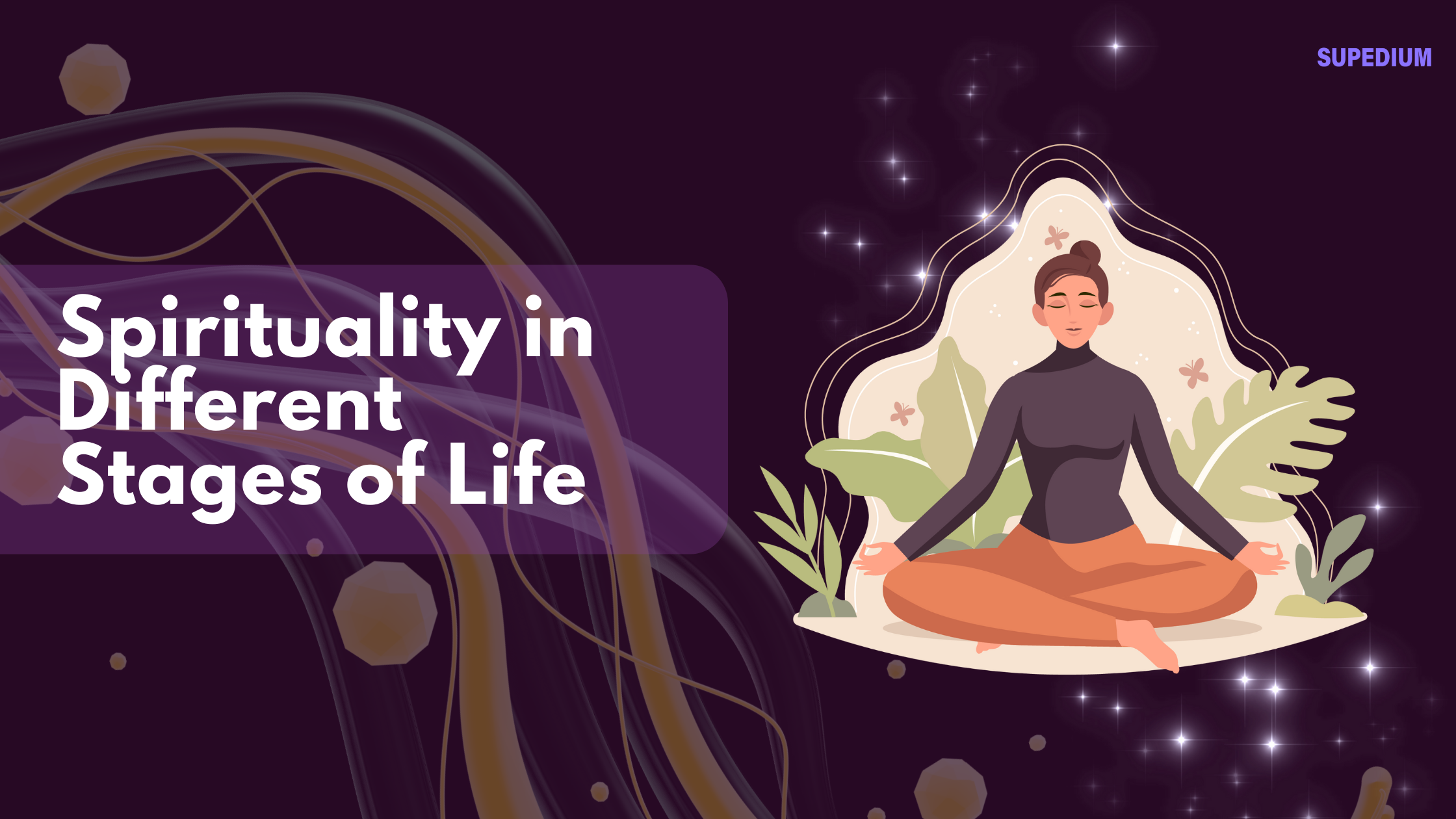Table of Contents
![]()
Introduction
Spirituality, often defined as a sense of connection to something greater than oneself, transcends mere religious practice. It encompasses personal growth, moral development, and existential understanding. Studying spirituality across different stages of life provides valuable insights into how spiritual needs and practices evolve as individuals navigate various life phases. This article explores spirituality from childhood through late adulthood, examining how spiritual experiences and understandings transform with age.
Childhood
Early Development of Spirituality
In childhood, spirituality is heavily influenced by family, culture, and early educational environments. For many children, spirituality begins in the context of religious upbringing, where practices and beliefs are introduced through family traditions and religious education. Children often absorb spiritual concepts in simple, concrete terms, learning about moral values, stories, and rituals from their caregivers.
Spiritual Imagination and Play
Children’s spiritual lives are also expressed through imagination and play. Storytelling, whether through religious narratives or moral fables, helps them understand abstract spiritual concepts in a tangible way. Symbolic play, where children create and act out scenarios involving good and evil, also reflects their early spiritual understanding and moral reasoning.
Formation of Moral and Ethical Understanding
At this stage, children begin to form their moral and ethical views, guided by the spiritual teachings they receive. They learn basic concepts of right and wrong, often framed within the context of religious or cultural norms. These early teachings lay the foundation for their future spiritual and ethical development.
Adolescence
Search for Identity and Belonging
Adolescence is a period marked by intense personal exploration and identity formation. Teenagers begin to question the beliefs and values they inherited from their childhood, seeking to establish their own spiritual identity. This period often involves exploring various spiritual paths, questioning established norms, and experimenting with new beliefs.
Questioning and Doubt
Adolescents are prone to existential questioning and doubt. They grapple with complex spiritual and philosophical issues, such as the nature of existence, the problem of suffering, and the existence of a higher power. Cognitive development during this stage allows for more abstract thinking, which fuels these inquiries and can lead to significant spiritual re-evaluations.
Role of Rituals and Traditions
Despite the questioning, rituals and traditions often play a critical role in adolescents’ spiritual lives. Participation in rites of passage, such as confirmation or bar mitzvahs, provides a sense of belonging and continuity. These rituals offer a framework for integrating their evolving beliefs with established spiritual practices.
Young Adulthood
Formation of Personal Beliefs and Values
In young adulthood, individuals refine their personal beliefs and values, often influenced by their education, career choices, and relationships. This stage is characterized by a deeper exploration of spiritual practices, which may include attending different religious services, engaging in meditation, or studying various spiritual philosophies.
Relationship with Spiritual Community
Young adults often seek connection with spiritual communities, whether through formal religious organizations or informal groups. These communities provide support, guidance, and a sense of belonging as young adults navigate life transitions such as starting a career, entering into relationships, or becoming parents.
Spirituality and Life Transitions
Significant life transitions, such as marriage or parenthood, can prompt a reevaluation of spiritual priorities. Young adults may integrate their spiritual beliefs into these new roles, finding ways to balance their spiritual practices with the demands of their personal and professional lives.
Middle Adulthood
Reflection and Re-evaluation
Middle adulthood is often a time of reflection and re-evaluation. Many individuals experience a midlife crisis, which can lead to questioning their achievements, values, and spiritual beliefs. This period often prompts a reassessment of life goals and spiritual priorities, leading to deeper spiritual exploration or a renewed commitment to previously held beliefs.
Legacy and Contribution
A key focus in middle adulthood is the desire to leave a legacy. This can involve contributing to society through community service, social justice efforts, or mentoring others. Spirituality at this stage often emphasizes making a meaningful impact and passing on spiritual or ethical values to future generations.
Spiritual Growth and Maturity
As individuals age, their spirituality often becomes more mature and integrated into daily life. Many people deepen their spiritual practices, finding greater meaning and fulfillment in activities such as prayer, meditation, or community involvement. This stage often reflects a more nuanced understanding of spirituality that encompasses both personal growth and communal responsibility.
Late Adulthood
Reflection on Life and Spiritual Legacy
In late adulthood, individuals frequently engage in reflection about their lives and their spiritual legacy. This period is marked by contemplation of life’s meaning and the impact one has had on others. Many older adults focus on sharing their spiritual wisdom and experiences with family, friends, and their communities.
Coping with Aging and Mortality
Spirituality can play a crucial role in coping with the challenges of aging and mortality. Many older adults turn to spiritual practices for comfort and strength as they face health issues or end-of-life concerns. Spiritual beliefs can provide a sense of peace, acceptance, and hope, helping individuals navigate the complexities of aging.
Transitioning to the End of Life
As individuals approach the end of life, spirituality often becomes a central focus. Practices such as prayer, meditation, and spiritual counseling can provide solace and support during this time. Many people seek to make peace with their lives and prepare spiritually for the transition, finding comfort in their beliefs and rituals.
Conclusion
Spirituality evolves throughout the stages of life, reflecting changes in personal development, life experiences, and existential understanding. From the early influences of childhood to the contemplations of late adulthood, spirituality offers a framework for making sense of life’s journey. Embracing this dynamic nature of spirituality can enhance personal growth and well-being, providing a meaningful context for navigating the complexities of each life stage.
Share This





Be the first to comment